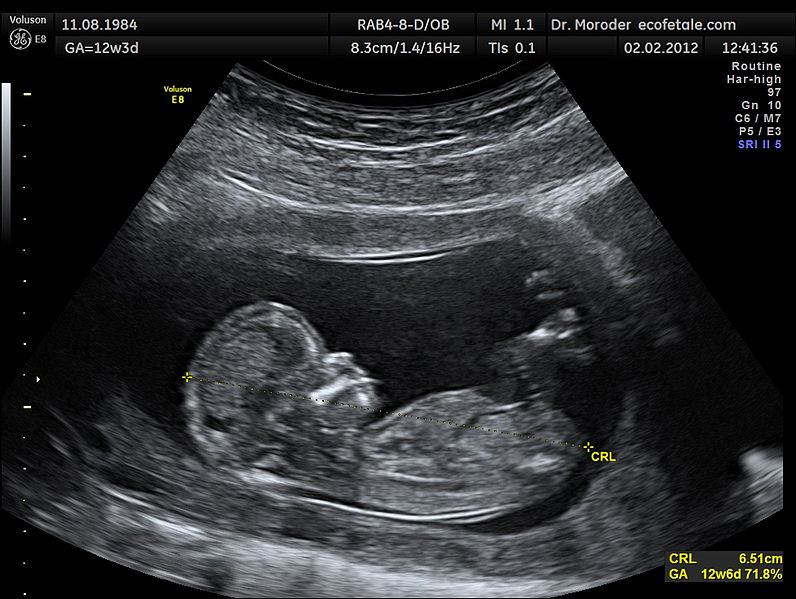 WASHINGTON — A federal appeals court has granted a request by the U.S. Department of Health and Human Services’ (HHS) Office of Refugee Resettlement (ORR) to attempt to find a non-government entity to be what is called in immigration law “a sponsor” of an undocumented teen who has sought to obtain an abortion after being informed while in federal custody that she is with child.
WASHINGTON — A federal appeals court has granted a request by the U.S. Department of Health and Human Services’ (HHS) Office of Refugee Resettlement (ORR) to attempt to find a non-government entity to be what is called in immigration law “a sponsor” of an undocumented teen who has sought to obtain an abortion after being informed while in federal custody that she is with child.
“The government argues that, pursuant to standard HHS policy, a sponsor may be secured for a minor unlawful immigrant in HHS custody, including for a minor who is seeking an abortion. The government argues that this process by which a minor is released from HHS custody to a sponsor does not unduly burden the minor’s right under Supreme Court precedent to an abortion,” the U.S. Court of Appeals for the District of Columbia outlined in its ruling on Friday.
The sponsor could be, for example, a relative that is a U.S. citizen or holds a Green Card. The Law Dictionary outlines that “[i]mmigration sponsorship can be provided by family members or companies.”
The appeals court panel agreed with the government suggestion 2-1, concluding that it would allow the effort “so long as the process of securing a sponsor to whom the minor is released occurs expeditiously.”
According to the Texas Tribune, the court found that if the teen was no longer in government custody, it would not have to rule on whether or not illegal immigrants have a right to an abortion when in federal detention—and the government would feel as if it washed its hands of the matter.
“We are not putting an obstacle in her path,” said U.S. Department of Justice attorney Catherine Dorsey. “We are declining to facilitate an abortion, which it is permitted to do in furtherance of its legitimate interest in protecting fetal life and childbirth.”
The appeals court therefore directed the lower court, which ordered ORR on Wednesday to allow the teen to have an abortion no later than Saturday, to allow the government until Oct. 31 to secure a sponsor, and then release the girl into the custody of that person.
“If a sponsor is secured and J.D. is released from HHS custody to the sponsor, HHS agrees that J.D. then will be lawfully able, if she chooses, to obtain an abortion on her own pursuant to the relevant state law,” the court wrote.
It said that if a sponsor is not obtained and the teen is not released by that date, the district court may again issue a restraining order and ORR may appeal.
As previously reported, the American Civil Liberties Union (ACLU) filed a lawsuit earlier this month on behalf of the 17-year-old girl, who is only being referred to as “Jane Doe” in legal documents.
According to reports, the teenager is from Central America and may be up to 15 weeks pregnant. She says she wants to abort her child, in part, because her parents had allegedly mistreated one of her siblings for becoming pregnant. She is currently in federal custody at an immigrant shelter in Texas.
“Instead of arranging for Ms. Doe’s requested medical care, Defendants forced Ms. Doe to visit an anti-abortion crisis pregnancy center where she was forced to undergo an ultrasound for no medical purpose, made to reveal intimate details about herself, and was subjected to the center’s attempts to dissuade her from having an abortion,” the lawsuit read.
“With the assistance of court-appointed guardian and attorney ad litems, Ms. Doe sought to obtain a judicial bypass of the state’s parental consent requirement. Ms. Doe had an appointment scheduled with a health center for counseling, but ORR refused to transport, or allow Ms. Doe to be transported by anyone, to the health center,” the complaint continued. “Defendants also made clear that Ms. Doe would be prohibited from obtaining the abortion itself.”
The ACLU also contended that the federal government was wrong to notify the teen’s mother that she was pregnant and seeking an abortion, when she wanted to keep the information hidden from her family.
“Defendants told my mother about my pregnancy and are trying to force me to tell her as well,” an affidavit filed with the lawsuit stated. “I do not want my family to know that I am seeking an abortion.”
On Wednesday, U.S. District Judge Tanya Chutkan, appointed to the bench by then-President Barack Obama, ruled that the teen is “legally entitled” to an abortion, and that if the girl is not permitted to obtain the procedure she might suffer “irreparable injury” because she will have to give birth. She ordered that the teen be allowed to obtain an abortion either on Friday or Saturday.
The Trump administration immediately appealed and oral argument was heard today in the U.S. Court of Appeals for the District of Columbia.
Following the release of the panel’s ruling, the ACLU expressed unhappiness that the government has been permitted to seek out a sponsor for the girl, and asserted that the lower court’s order should have been upheld.
“There’s no reason why her immigration status should diminish her constitutional rights,” ACLU attorney Brigitte Amiri told reporters. “Our client and women across this country should be able to access a safe, legal abortion without federal officials stepping in to interfere.”
Become a Christian News Network Supporter...


